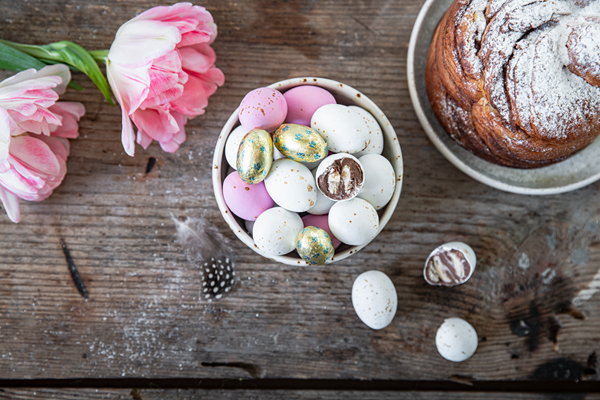
As Easter approaches, the air is filled with excitement and anticipation for the joyous celebrations ahead. From colorful egg hunts to delightful feasts, Easter is a time for families to come together and create cherished memories. However, amidst the festivities, it’s important for pet owners to remain vigilant and ensure the safety of their furry companions.
With a little foresight and precaution, we can enjoy Easter to the fullest while keeping our beloved pets safe from potential hazards. Join us as we explore some common Easter items and how to keep our pets out of harm’s way during the holiday season!
Chocolate
Ah, chocolate – the quintessential Easter treat! While delicious for us, chocolate can be toxic to our pets, especially dogs and cats. The theobromine and caffeine found in chocolate can cause vomiting, diarrhea, rapid breathing, increased heart rate, seizures, and even death if ingested in large quantities. Keep chocolate treats safely out of reach of curious pets and opt for pet-friendly alternatives instead.
Flowers
Beautiful blooms add a touch of elegance to Easter celebrations, but certain flowers can be harmful to pets if ingested. Lilies, azaleas, rhododendrons, daffodils, and tulips are all toxic to pets and can cause symptoms ranging from gastrointestinal upset to more serious complications including kidney failure. Keep these flowers out of reach and consider pet-safe alternatives like Easter cacti or non-toxic flowers such as roses, sunflowers, or orchids. All parts of the lily are extremely toxic to cats so keep these out of the house, as even a bit of pollen on fur can potentially be fatal.
Hot Cross Buns and Uncooked Dough
Hot cross buns are a beloved Easter tradition, but the raisins and currants often found in these tasty treats can be toxic to pets if ingested, even in small quantities. Additionally, uncooked dough can cause alcohol poisoning and can expand in your pet’s stomach, causing bloating, discomfort, and potentially dangerous complications. Keep these treats securely stored away from curious pets and dispose of any uncooked dough safely.
Easter Feasts
Easter feasts are a highlight of the holiday, but some traditional foods can be harmful to pets if consumed. Ham and turkey bones, for example, can splinter and cause choking, gastrointestinal blockages, or internal injuries if ingested by pets. Chewing on bones can cause painful tooth fractures. Avoid feeding bones to pets and be mindful of other festive foods that may be too rich or fatty for their digestive systems, potentially landing them in hospital with a case of pancreatitis. And don’t forget to keep food waste away from your curious pet!
Plastic Toys and Easter Grass
Easter wouldn’t be complete without colorful plastic eggs and toys, but these can pose a choking hazard or risk of an intestinal blockage, if ingested. Similarly, Easter grass used for decoration can cause intestinal blockages if swallowed. Like ribbons, Easter grass is particularly tempting to cats and can be easily swallowed once they start chewing it. Opt for pet-safe toys and decorations made from natural materials and keep small objects out of reach of pets to prevent accidental ingestion.
As we prepare for Easter celebrations, let’s not forget about the safety and well-being of our furry friends. By taking a few simple precautions – such as keeping chocolate and toxic plants out of reach, avoiding harmful foods, and opting for pet-safe decorations – we can ensure that Easter remains a joyful and festive occasion for everyone, including our beloved pets. Here’s to a safe and happy Easter filled with love, laughter, and wagging tails!
